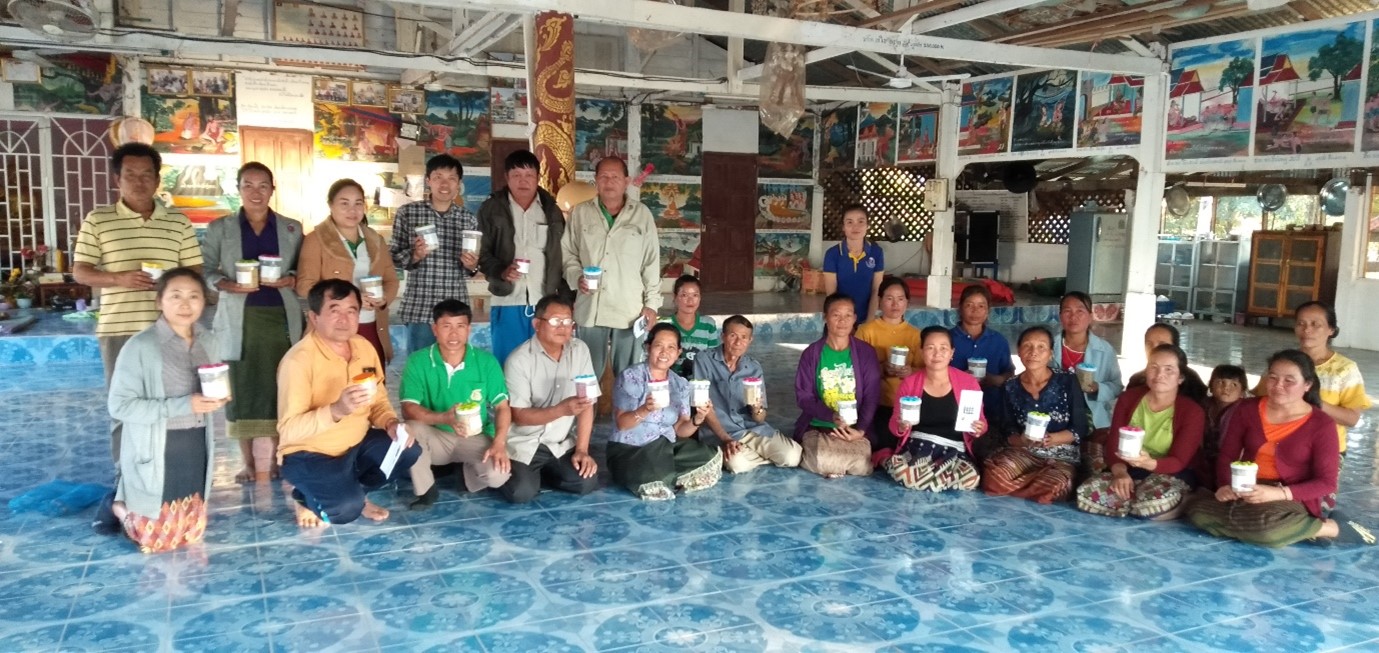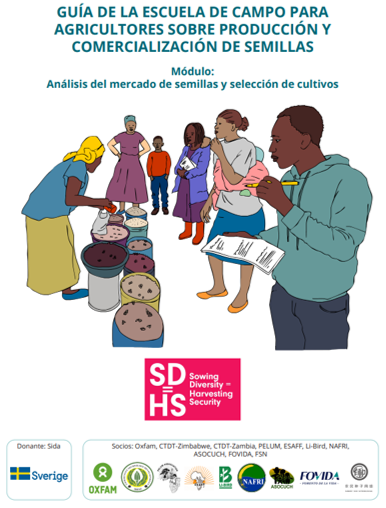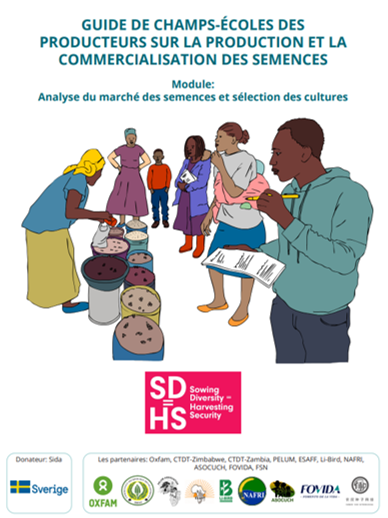This Field Guide module has been developed drawing from a wide range of sources and experiences, from within the SD=HS programme and from various other organizations, and has benefited in particular from the longstanding efforts of Bioversity International in this field. It is intended to be used in the context of farmer field schools. It is modest in size, involving a series of six sessions in total, and you may opt which sessions to make use of. It complements the work and Field Guides on Participatory Plant Breeding and Nutrition within the SD=HS programme, as well as its efforts in the area of Farmer Seed Enterprise.
Community Seed Banks
This module is devoted to community seed banks: how to establish and manage community seed banks in a sustainable way that is affordable and beneficial to the community. It can be used by communities that are planning to develop a community seed bank, but also by communities that have already done so, and wish to discuss and improve its functioning. It can be integrated into Farmer Field Schools in Participatory Plant Breeding or into Nutrition, but also be used as a stand-alone activity. Like in any regular Farmer Field School it is best to organize interested farmers in the community into a group, discuss the objectives of the exercise and plan the activities.
The module builds on experiences with Community Seed Banks worldwide and focuses on ways to make the Community Seed Bank operations sustainable over time: which are the desired community seed bank functions, what can farmers expect from the community seed bank, how can we ensure that the investments pay off and the results of the work undertaken are lasting. It also deals with ways to link the local community seed bank to a network of seed banks and with the national genebank. The module contains a number of core exercises that can help communities to develop and manage their community seed bank. These can be undertaken in a small number of sessions, approximately six half-day sessions in total. These focus on:
1. Diagnosis
2. Planning
3. Seed bank design
4. Community seed bank management
5. Uptake and distribution of seed, and
6. Integration in community activities
A list of questions provided below on each of these items may guide the discussions. The chapter on further reading is of relevance to the trainers. Trainers are advised to read that text in advance of the training.









